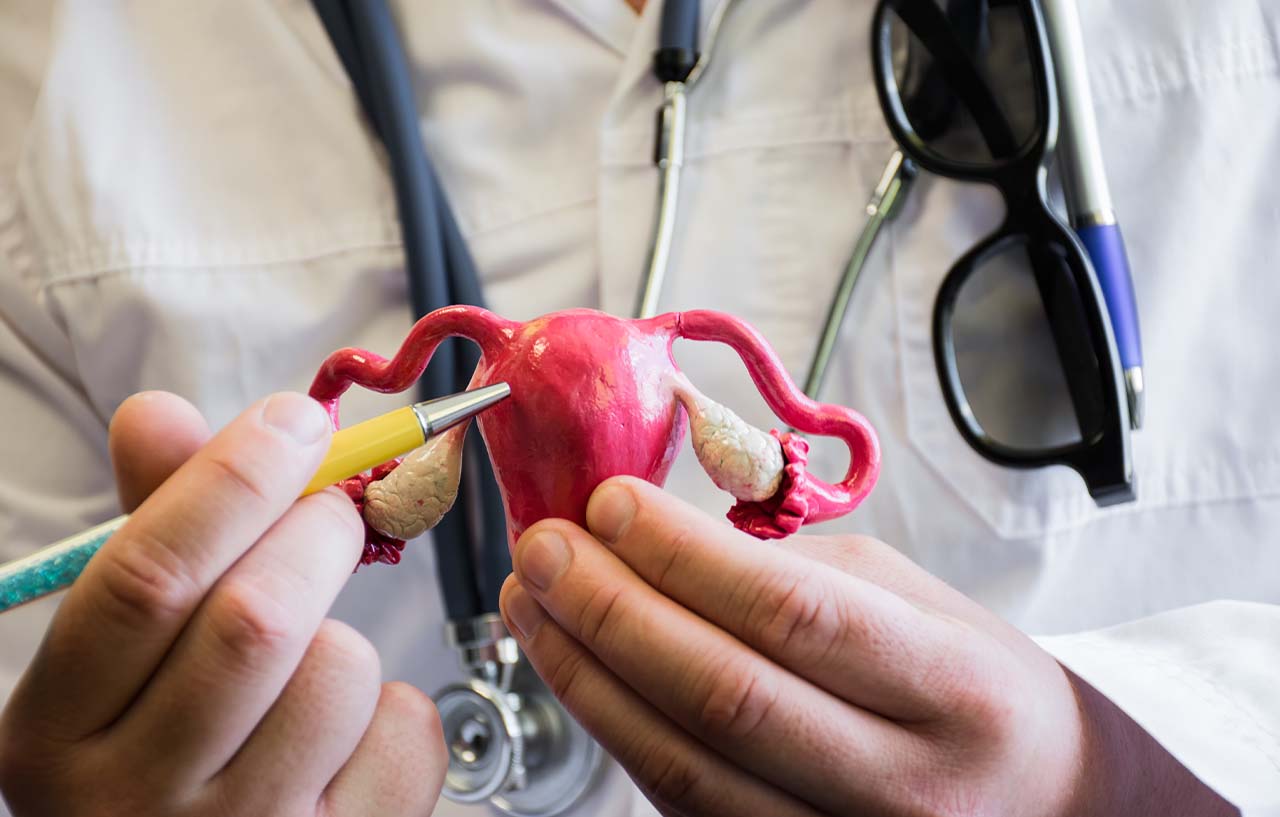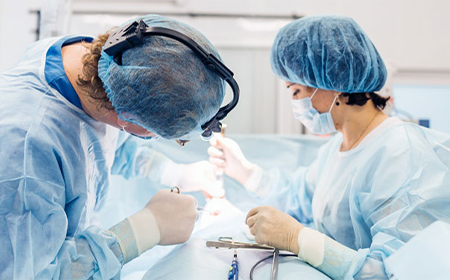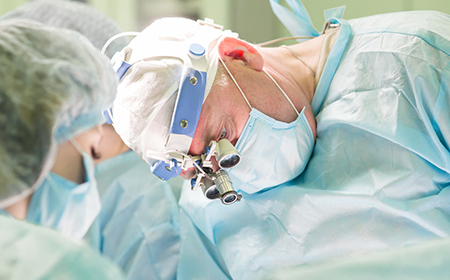Recovery from general surgery looks different for everyone. It depends on factors, such as:
- Your general health
- Your fitness
- The reason for having general surgery
- The specific procedure(s) you have
- Your lifestyle
It is important to discuss your recovery journey with your Consultant in detail. They will be able to provide an accurate recovery timeline based on your individual circumstances.
 Depending on the surgery you have had, you might require physiotherapy. This is likely if you need to rebuild your muscular strength and range of movement following surgery. If so, your Physiotherapist will work with you to build a tailored exercise and massage therapy regime suited to your needs. You will be able to perform these exercises during your sessions and at home to ensure you experience the quickest recovery possible. Find out more about our physiotherapy services here.
Depending on the surgery you have had, you might require physiotherapy. This is likely if you need to rebuild your muscular strength and range of movement following surgery. If so, your Physiotherapist will work with you to build a tailored exercise and massage therapy regime suited to your needs. You will be able to perform these exercises during your sessions and at home to ensure you experience the quickest recovery possible. Find out more about our physiotherapy services here.
We share the recovery timelines for some of our most common general surgery procedures below:
It takes around two weeks to fully recover from laparoscopic gallbladder removal surgery. Most people who have keyhole surgery can leave hospital on the same day as the operation, but you might be required to stay overnight depending on your individual circumstances. This may well be arranged before surgery.
You will need to organise for a lift home from a family member or friend, because you will not be able to drive yourself. Or we can arrange for a taxi to collect you from our hospital, if needed. Someone should stay with you for at least 24 hours if you go home on the same day as your operation, as you may still be feeling the effects of the anaesthetic and so you’ll need support at home. Side effects of anaesthesia include sleepiness, vomiting and chills.
You should be gentle with yourself for two weeks after surgery, only walking slowly and briskly for exercise. After two weeks, you can return to your normal everyday activities, unless your Consultant has specifically requested that you do not. You should also be able to return to work after two weeks if you have a desk job. If you have a manual job involving more strenuous activity, you may need to take some more time off to rest and recover. Please discuss this with your Consultant in more detail.
The recovery period following this procedure is fast. You should be able to return to everyday life as normal after two days.
After surgery, you will need to rest in hospital for up to two hours until the effects of the local anaesthetic or sedative have worn off. A friend or family member will need to drive you home after the procedure, as you will not be able to do this yourself. We can arrange for a taxi to collect you from the hospital, if needed.
It is normal to experience a sore throat and bloated tummy for a couple of days after surgery. This will resolve over time, but be gentle with yourself as you rest and recover by drinking plenty of fluids, and take painkillers if you need to. Speak with your Consultant about your symptoms and the best way to manage them if they concern you.
Avoid food and drink before the procedure
In preparation for surgery so that your Consultant can see your upper GI tract clearly, you will not be able to eat or drink for up to 8 hours before the procedure. You can take most medication as usual, but you may need to adjust or stop some medication for a brief time before your upper GI endoscopy.
The nature of your recovery following this surgery depends on how simple or complex the nature of your anal fistula is. More complex fistulas, which are situated more deeply and cannot be treated using dissolvable stitching, are more difficult to treat. Surgery for these may even be planned in stages over the course of a few months.
If your surgery is a simpler case, you will be encouraged to get up from bed and walk around within two hours after the procedure. You will be able to leave hospital on the same day as surgery or the following day. You should expect to be able to open your bowels within one to three days after surgery. This may be uncomfortable at first. It is also common to experience some bleeding and discharge when this happens, so do not be alarmed if it does. Provided you feel comfortable and are recovering well at home, you can return to normal work and life a week after surgery. Over the first few weeks you may notice some changes in your ability to control wind. This is normal and will resolve within a few weeks.
Speak with your Consultant in more detail about what your recovery timeline will look like for you following anal fistula surgery.
The recovery time after having haemorrhoidal artery ligation is fast because the operation does not involve any incisions, and because stitching is placed in the lower rectum, where there are very few pain nerves.
Most people will return home on the same day as surgery, though some will stay in hospital for one night. If so, this will probably be arranged beforehand. A friend or family member will need to drive you home after the procedure, as you will not be able to do this yourself. We can arrange for a taxi to collect you from the hospital, if needed.
Most people can return to work and everyday life 48 hours after surgery. You might experience minimal discomfort in the form of throbbing in your anus. This can be managed with painkillers. Speak with your Consultant about the nature of your recovery timeline and how it will look depending on your circumstances, including how to effectively manage any discomfort following surgery.
 General surgery is an umbrella term to describe a plethora of surgical procedures that fall under a number of different medical subspecialties. It can range from surgery concerning your stomach health, such as bowel and gastrointestinal surgery, to surgical treatment for skin problems, traumatic injuries, and even breast health.
General surgery is an umbrella term to describe a plethora of surgical procedures that fall under a number of different medical subspecialties. It can range from surgery concerning your stomach health, such as bowel and gastrointestinal surgery, to surgical treatment for skin problems, traumatic injuries, and even breast health.  There are many symptoms that might indicate you require general surgery. These include:
There are many symptoms that might indicate you require general surgery. These include:
 During this first appointment, your Consultant will ask about your general health and take a detailed examination of your medical history. They will want to know about existing medical conditions you suffer from, as well as the current symptoms you are experiencing. They will also want to know how these symptoms impact your everyday life, how often they occur and whether you have tried treatment options for them already. In order to assess your symptoms and make an accurate diagnosis of your concern, your Consultant will gently carry out a physical examination and arrange for relevant diagnostic testing, if required.
During this first appointment, your Consultant will ask about your general health and take a detailed examination of your medical history. They will want to know about existing medical conditions you suffer from, as well as the current symptoms you are experiencing. They will also want to know how these symptoms impact your everyday life, how often they occur and whether you have tried treatment options for them already. In order to assess your symptoms and make an accurate diagnosis of your concern, your Consultant will gently carry out a physical examination and arrange for relevant diagnostic testing, if required.  Depending on the surgery you have had, you might require physiotherapy. This is likely if you need to rebuild your muscular strength and range of movement following surgery. If so, your Physiotherapist will work with you to build a tailored exercise and massage therapy regime suited to your needs. You will be able to perform these exercises during your sessions and at home to ensure you experience the quickest recovery possible. Find out more about our physiotherapy services here.
Depending on the surgery you have had, you might require physiotherapy. This is likely if you need to rebuild your muscular strength and range of movement following surgery. If so, your Physiotherapist will work with you to build a tailored exercise and massage therapy regime suited to your needs. You will be able to perform these exercises during your sessions and at home to ensure you experience the quickest recovery possible. Find out more about our physiotherapy services here. 

